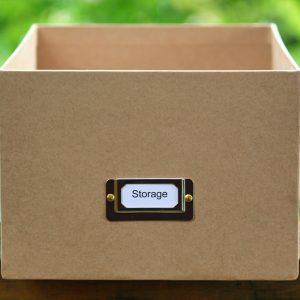Before moving into an older home, it’s important to ensure it meets your expectations and doesn’t have glaring issues that could lead to safety and comfort concerns. Understand your needs and match them with the home’s features to avoid making mistakes. If possible, walk through the home with an expert to get the home you want and deserve.
If you do decide to purchase an older home, consider picking up home warranty coverage to help cover a portion of repairs to the more important parts of the home like the roof and HVAC system.
Things to consider before moving into an older home
Here are nine questions to ask yourself before making the big move.
Is the HVAC system in good condition?
The heating, ventilation, and air conditioning system are a significant part of your home. It regulates the comfort levels of your home, so be sure the HVAC unit is in good shape and can keep the home warm or cool. The more information you gather about the system before moving in, the better.
Also, check the insulation of the exterior walls and seal any air leaks. Better still, call a professional to inspect the unit. Is it adequately sized for the size of the home? How old is the appliance? Is it efficient, or will it require frequent repairs? Consult professionals such as Killeen heating and air conditioner experts to ensure the house’s HVAC system is in good condition.
What condition is the roof in?
The roof is one of the most critical parts of a house. It protects the structure and its inhabitants from harsh weather. Check if there are any leaks and ask how old the roof is. Is it in good condition, or will it require frequent repairs? Can you fix the issues, or will you need to install a new roof? To find out, call professionals for an inspection.
How is the lighting?
Is there enough natural light in the house on an average day? Natural lighting is essential because it makes your home look bigger and brighter, and more sustainable. The amount of natural light coming in depends on several factors.
There will be lighter if you have large windows in a room. The house’s size also determines how much light gets in. A large house or apartment means that there’s a lot of space to let in natural light.
What about the lighting fixtures? Will you need more or fewer lights in the house? How many electrical outlets and USB chargers do you need to power your gadgets? Can the current electrical system sustain your energy demands? Does the wiring meet the set codes?
These are all important questions to ask before you sign on the dotted line, so you know exactly what upgrades will be necessary.
The plumbing system
Ask questions to find out how old the plumbing system is, and if it is in good condition. How many people will use the plumbing system? How many bathrooms does your home have? Will you need additional bathrooms or fixtures installed?
Determine the condition of the entire plumbing system, including the piping, drains, and fixtures. Ask a plumber to inspect the plumbing system before moving into the home. Some homes have outdated plumbing fixtures that cannot handle modern plumbing demands. If you are not sure, it’s better to consult a professional plumber to find out.
Are the windows in good condition?
Modern windows are more efficient, and they enhance the exterior of a house. Ask if they are double or triple-pane windows and if they are energy efficient. Look at the window screens and window coverings. If there are none, take note of the extra costs you could incur. Check if the windows open and close easily, and check for drafts before moving in.
Is the property pest-free?
Before you sign the contract, make sure the property is pest-free. It’s important to know what pests problems to look for and how to protect yourself. Some pests are easier to get rid of than others; you don’t want to move into a home with a stubborn pest problem. Talk to the neighbors, or call a pest control expert for an inspection and fumigate if necessary.
How energy-efficient is the home?
Older homes tend to have inadequate insulation, which isn’t good for energy efficiency and utility costs. If you are not sure whether the insulation is adequate, call an expert to check for you. Insulation options have changed over time. There are now better and more efficient insulation materials you can choose, if necessary.
Other than this, find out if there are any smart installations you can add to make the home more energy-efficient, convenient, comfortable, and valuable. For instance, installing smart thermostats, smart doorbells, or automatic lighting can significantly impact the overall comfort of your home.
Is there lead paint?
Lead is hazardous to you and your family’s health, as it can affect neurological development. Has the property been tested for its presence? The good news is that lead is no longer used in manufacturing paints, but you could still find it in older homes.
You should also test for asbestos. If present, have the asbestos removed by a trained professional who understands how to do it right. Asbestos exposure can also cause serious health problems if disturbed.
Is there a need for repairs?
Older homes require more repairs than new buildings because of deterioration over time. Take time to understand the condition of your home, or hire a professional contractor to inspect it for you before moving in. When you detect problems, know how extensive they are and whether it makes economic sense to fix them.
Common repairs in older homes include replacing fixtures, repainting the house, fixing plumbing problems, replacing appliances, and upgrading where necessary.
Make sure the home is in excellent condition
Buying an older home can be rewarding, but it also comes with many responsibilities. Before purchasing an older home, have a professional inspect the property for you. At the same time, understand that some problems will be more challenging to solve than others.
For example, it’s more expensive if the wiring system needs replacement. However, if the current homeowner agrees to pay for the repairs, this is an excellent option. Just make sure to do your research and weigh your options carefully before making your final decision.
Infographic provided by Air Mechanical




